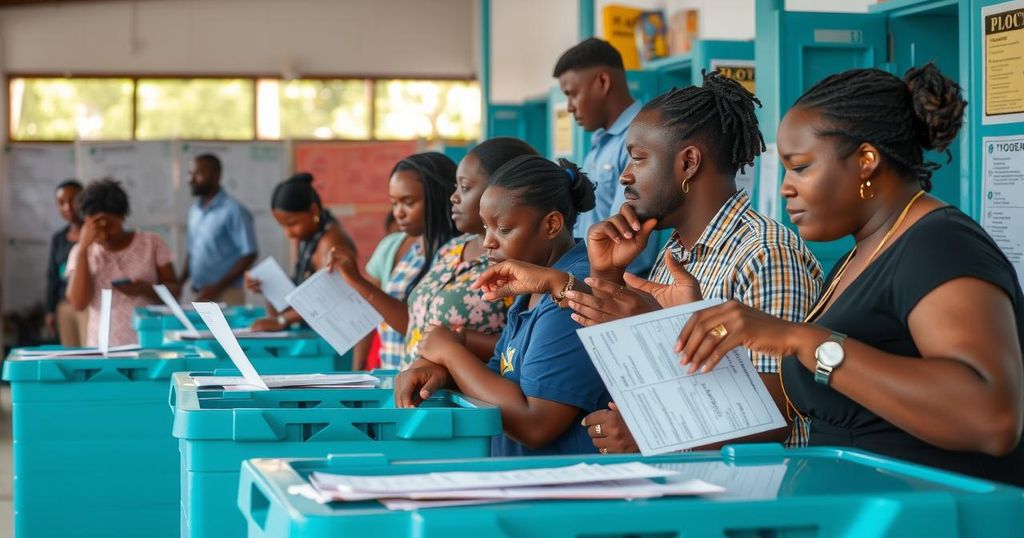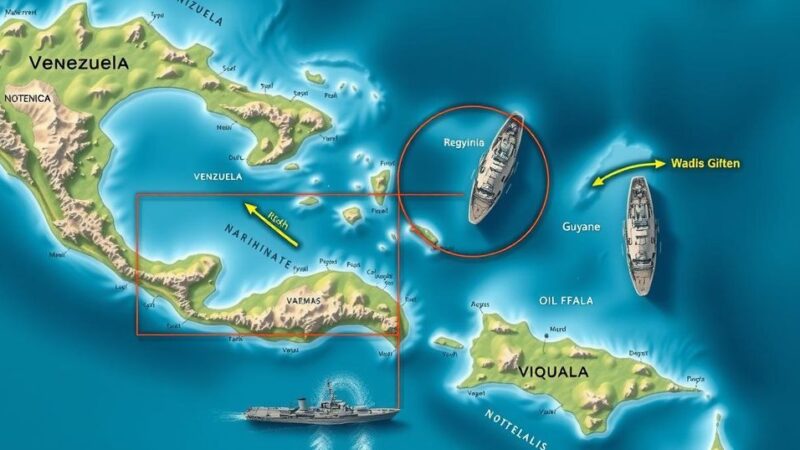Voters in Comoros are participating in elections for the country’s 33-seat parliament amid allegations of irregularities from the previous election. With approximately 338,000 registered voters, nearly 100 candidates are contesting for parliamentary seats. President Assoumani faces accusations of authoritarianism and plans to elevate his son as successor. Results are expected by Friday, as the opposition debates the effectiveness of their participation amidst calls for a boycott.
Voters in Comoros are casting their ballots to elect members of the archipelago’s 33-seat parliament, one year following the contentious re-election of President Azali Assoumani. The opposition claims that the previous election was fraught with irregularities, a charge that officials from the ruling party have categorically denied. Polling stations opened early on Sunday, with approximately 338,000 registered voters participating. The last parliamentary elections took place in January 2020, and this year, the Supreme Court nominated nearly 100 candidates to vie for parliamentary seats.
President Assoumani’s tenure has been marked by accusations of authoritarianism, with critics alleging that he is grooming his eldest son, Nour El-Fath, as his successor when his term concludes in 2029. Having been in power since a coup in 1999, Assoumani has secured three electoral victories. In a controversial move in 2024, he granted significant authority to his son, tasking him with overseeing all governmental operations. Several opposition factions, including Juwa, led by former President Ahmed Abdallah Sambi—currently serving a life sentence—have advocated for a boycott of the elections. However, others have dismissed these calls, suggesting instead that participation would highlight the regime’s shortcomings. Hamidou Karihila from the opposition Hope of the Comoros party articulated the sentiment that engaging in the elections could expose systemic flaws and hasten the regime’s downfall.
Polling results are anticipated by Friday, which will provide further insights into the political landscape in Comoros.
Comoros is a small island nation in the Indian Ocean, consisting of three main islands. The political climate in Comoros has been characterized by instability, including coups and allegations of electoral fraud. President Azali Assoumani, who initially assumed power through a coup in 1999, has faced criticism for his governance style, which many label as authoritarian. The country has undergone various electoral processes, with the public’s trust in these elections being a contentious issue, particularly in the face of alleged irregularities.
The parliamentary elections in Comoros represent a critical juncture in the nation’s political landscape, with significant implications for President Azali Assoumani’s leadership and the opposition’s efforts to challenge his authority. As the public engages in the electoral process amidst widespread allegations of manipulation and the looming shadow of Assoumani’s familial succession plan, the results could either bolster the existing regime or catalyze systemic change. Observers are keenly awaiting the outcomes, scheduled for release by Friday.
Original Source: www.muswellbrookchronicle.com.au






